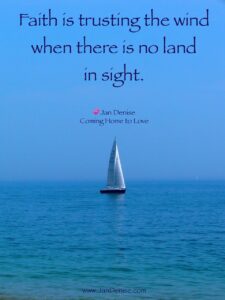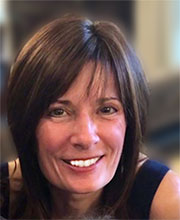 The goal of learning is to bring the unknown into the known. The mere act of embracing the unknown as the truth requires a degree of faith. When we limit ourselves to believing for the known — or what we have already proven to be true — we also limit our results to those we have experienced. While we can move beyond our own experience by learning from somebody else’s experience, we are still operating in the known — albeit it “unknown” or new to us.
The goal of learning is to bring the unknown into the known. The mere act of embracing the unknown as the truth requires a degree of faith. When we limit ourselves to believing for the known — or what we have already proven to be true — we also limit our results to those we have experienced. While we can move beyond our own experience by learning from somebody else’s experience, we are still operating in the known — albeit it “unknown” or new to us.
So, is experience really the best teacher? It depends on what you want to learn. Is the past really the best predictor of the future? It is if you want to be able to predict the future. Expanding into the unknown means not being able to predict the future; but it also means ensuring that the future does not equal your past.
I embraced a belief as a little girl that “faith without works is dead.” And it has seemed to me a valid belief. I have spent my life wanting to do all that I knew to do, believing that then I could trust God to do his part. For the last several years I have tried to balance doing my part with letting go. On the surface, it seemed straight forward enough: Do my part, and then let go and trust God to do his part. Yet I struggled to know where my part ended and the letting go began.
Only now do I truly get it. Only now am I ready to discard my childhood belief and replace it with a new one. Only now do I fully realize that struggling to balance is a result of cognitive dissonance. Likewise, I know that consternation indicates a lack of alignment with what I know to be true. But my childhood belief seemed to rest on solid ground. What I realize now is this: Faith without works is dead … but I need not do my part before I have faith, and my part need not be based on what I know. It can be based on the unknown, which I am intended to grow into.
The unknown represents the infinite possibilities of love. Of faith. When my faith reaches only what I can know, it limits me; when it reaches beyond what I can know, it rewards me with growth. It rewards others with growth. I must, if I am to know peace, align with my essence of love, which is more than I can imagine, just as God is more than I can imagine. Love is my God seed.
And love transcends my knowledge, or what I know to do. It also transcends my consternation. It knows no struggle. Likewise, I know no struggle, except when I choose to fear. Sadly, I have been afraid — without realizing it — of failing to do my part, because I was holding on to the belief that in order for God to do his part, I had to do mine. God was always going to do his part; and his doing it never depended on me!
What I saw as his part was really the manifestation of my own faith, or the creation of what I believed for. God is not limited by my faith — except in my little world where my beliefs act as gatekeepers. I must not strive to be important; I must discover that I am. And in doing so, I don’t struggle to do what I know to do in order to believe for predictable results. I move beyond what I know by believing in the unpredictable … and I believe in the unpredictable by opening myself to the infinite possibilities of love.
I still do what I know to do, but that’s the small stuff. To manifest big stuff is to place my faith in the unknown … and look for results based on that faith, not on my finite actions. My faith transcends what I can see, or what I know, only when I place it in the unknown, in that which I have no rational action plan to achieve.
I do not believe that I must do my part in order for God to do his. I believe that my part manifests God’s part … and that for that manifestation to be my idea of God-like, I must be my idea of God-like. I must be love … and in being love, I can believe in the infinite results of the unknown, the unproven.
 Jan's program for the quest of a lifetime.
Jan's program for the quest of a lifetime. Are you ready to live your destiny?
Are you ready to live your destiny?